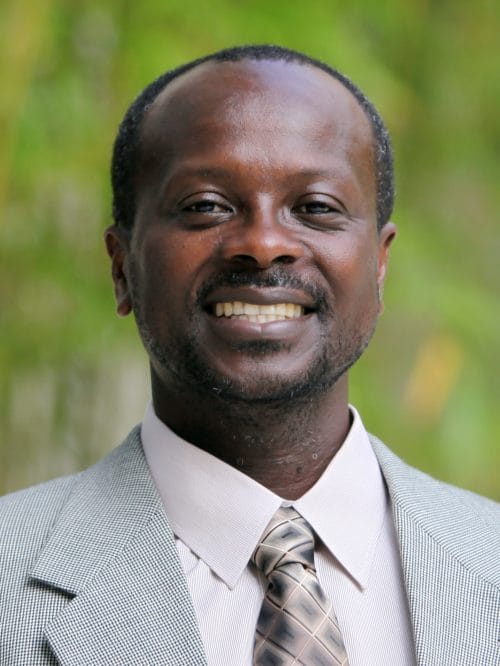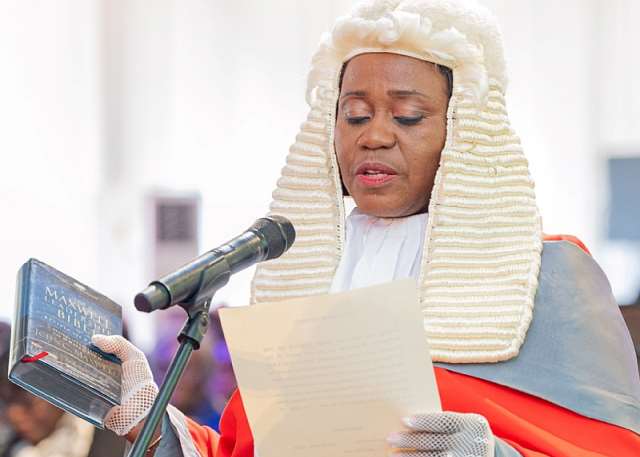Two well-known voices from the legal and civic communities have clashed as the controversy surrounding the legal and moral handling of Ghana’s suspended Chief Justice, Justice Gertrude Torkonoo, removal proceedings heat up.
Both have made strong but opposing arguments to the country’s conscience and constitution. The conversation reflects larger conflicts in Ghana’s changing democratic environment regarding justice, institutional accountability, and the rule of law.
Private lawyer and veteran broadcaster Richard Dela Sky made a provocative statement in which he cited the wisdom of English philosopher Francis Bacon to warn against what he sees as an impending storm of institutional indifference.
Dela Sky referenced Bacon’s timeless reminder: “If we do not maintain justice, justice will not maintain us,” as a clarion call, not just to judges and lawyers, but to society at large, to be wary of the consequences of selective justice and politicized legal processes.
But perhaps more striking was Dela Sky’s culturally grounded warning, framed in the metaphor of an old Ewe proverb: “Do not use calabashes of convenience to fetch unclean water for others, for by those same calabashes, you too shall be served.”

The message was clear: injustice, when set loose, does not discriminate. It was a passionate appeal, warning Ghanaians not to take delight in the plight of one, particularly the suspended Chief Justice, without contemplating the precedent such delight might set.
His lament resonated with undertones of poetic solemnity, as he sought to underscore the fragility of judicial integrity in times of political convenience and mass opinion.
To Sky, the ongoing probe into the conduct of the suspended Chief Justice—a rare and delicate moment in Ghana’s legal history—carries broader implications for how the judiciary is perceived and preserved.
Counter Arguement
However, this view was met with an equally powerful rebuttal from Professor Stephen Kwaku Asare, a respected legal scholar and Democracy and Development Fellow at the Ghana Centre for Democratic Development (CDD-Ghana).
Known for his rigour and incisive legal reasoning, Professor Asare chose not the path of poetry but constitutional clarity. “May I also respectfully respond, not with proverbs or poetry, but with plain constitutional honesty,” he began.
To Professor Asare, the narrative of victimhood surrounding the Chief Justice’s appearance before a disciplinary committee is misplaced.
Far from being the target of mob justice or political witch-hunting, he stressed that the suspended Chief Justice is undergoing a legitimate constitutional process.
“She is appearing before a constitutionally mandated committee, chaired by a Supreme Court Justice, and governed by procedures she herself has upheld in past cases involving other judges. That is not oppression. It is called due process”.
Professor Stephen Kwaku Asare, CDD-Ghana D&D Fellow and Legal Scholar
He questioned the notion that the Chief Justice is being mistreated, pointing out the exceptional procedural courtesies she has received: “Three injunction applications heard in record time, and none dismissed with costs? That’s not persecution. That’s grace.”

In a forceful rejection of any narrative framing the case as an attack on justice, Professor Asare countered that justice is not eroded when rules are enforced, even when they involve high-ranking members of the judiciary.
If anything, he argued, the integrity of the justice system is reinforced when those who have upheld rules are made to submit to the same.
“Confidentiality is not a cover-up; it is a constitutional safeguard to protect the dignity of the judiciary,” he noted, in response to criticisms surrounding in-camera hearings.
He acknowledged that the Chief Justice has every right to challenge procedural aspects she believes are unfair. However, he was firm in declaring that breaching constitutional safeguards and then claiming victimhood cannot be a path to justice.
And then came his most blistering line: “Respectfully, this is not a moment for poetic fearmongering. It is not the Holocaust. It is not tyranny. It is the Constitution at work.”
The implication was profound: Ghana’s democracy, still consolidating its roots, must not conflate legitimate institutional scrutiny with institutional sabotage.
In what reads as a reaffirmation of Ghana’s democratic architecture, Professor Asare concluded: “The lesson here is not that she is being hunted. It is that she is being held to the same standards she once enforced. That’s not injustice. That’s accountability.”
This well-known discussion between two legal experts highlights a fundamental contradiction in Ghana’s democratic and judicial evolution: the conflict between sentiment and constitutionalism, between symbolism and substance.

Professor Asare serves as a sobering reminder that the law must be applied equally, particularly at the highest levels, even though Sky’s appeal is based on the emotional and cultural sensitivities of public life.
Despite their differences in tone, style, and framing, Dela Sky and Professor Asare share an understanding of the seriousness of the situation. Their conversation is more than just a scholarly disagreement; it is a reflection of Ghana’s current constitutional moment, which calls for introspection, change, and most importantly, bravery.
However, it will be the determination of both citizens and institutions to guarantee that justice is carried out properly—without fear or favour and that it is perceived as such.
READ ALSO: West Africa Must Move Beyond Raw Mineral Exports – Lands Minister




















